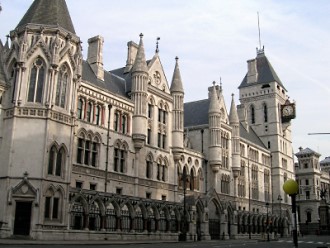Lord Justice Richards rules foreign criminal offenders can be deported before their article 8 appeal rights are exhausted
The Guardian yesterday covered the judgment in the case of Kiarie, R (On the Application Of) v Secretary of State for the Home Department [2015] EWCA Civ 1020, noting that the Home Office had won a key legal challenge on the "deport first, appeal later" policy.
 Image credit: WikipediaEIN members can read the judgment here.
Image credit: WikipediaEIN members can read the judgment here.
In the case, two appeals were heard together concerning the interpretation and application of section 94B of the Nationality, Immigration and Asylum Act 2002, as inserted by the Immigration Act 2014.
The two appellants, from Kenya and Jamaica, faced deportation for serious criminal offending. Both argued it would be a breach of article 8 of the European Convention on Human Rights as they had long-standing family ties to the UK. The Secretary of State refused the human rights claim and certified the claim under section 94B.
The effect of certification under section 94B is that any appeal against the decision on the human rights claim must be brought from outside the United Kingdom unless there is a "real risk of serious irreversible harm", the so-called "deport first, appeal later" policy.
The Guardian notes that Lord Justice Richards, giving the lead judgment, dismissed the argument that an appeal heard from overseas would not allow the men proper access to justice, referring to the "strong public interest in the deportation of foreign nationals who have committed serious criminal offences".
LJ Richards stated in the judgment: "I accept that an out of country appeal will be less advantageous to the appellant than an in country appeal. But article 8 does not require the appellant to have access to the best possible appellate procedure or even to the most advantageous procedure available. It requires access to a procedure that meets the essential requirements of effectiveness and fairness."
He continued: "In these days of electronic communications, an out of country appellant does not face serious obstacles to the preparation or submission of witness statements or the obtaining of relevant documents for the purposes of an appeal."
Richards did, however, rule that Home Office guidance issued to caseworkers on the application of section 94B was "inaccurate and misleading", saying: "The guidance is liable to mislead decision-makers into applying the wrong [statutory] test."
Note also that when outlining the relevant legislation and amendments to section 94B, Lord Justice Richards said that he was "appalled by the complexity of that legislative jigsaw".
According to the Guardian, the ruling will be a boost to the Government as it will be able to move ahead with plans to widen the application of the ruling so that it can be used in many more non-criminal deportation cases.
Lawyers for the men said they will be considering appealing to the Supreme Court.